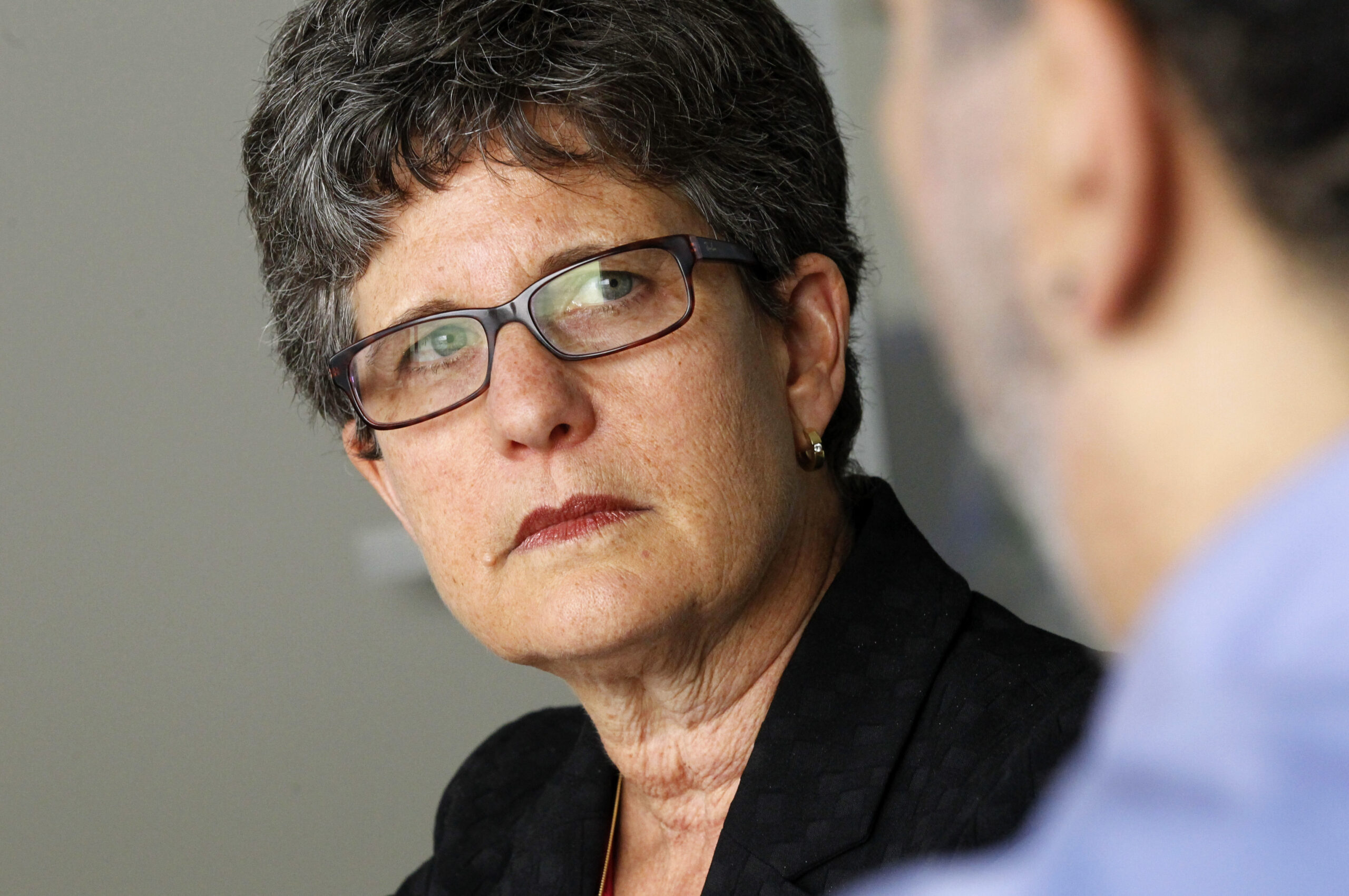A top San Francisco official who resigned over dealings with scandal-ridden waste company Recology appears to face allegations that she broke conflict-of-interest rules.
A confidential case at Friday’s Ethics Commission seemed to focus on Debbie Raphael, who led the San Francisco Department of the Environment until she stepped down last year as part of a sprawling pay-to-play scandal at City Hall.
Much of the scandal centered on Recology and bribes its subsidiaries paid to curry favor with Mohammed Nuru, the Public Works head who controlled rates all San Franciscans must pay the firm to pick up their trash.
Details of the apparent case against Raphael would only be made public if the Ethics Commission decides there’s probable cause she broke the law. But the government watchdog panel was set to hear a matter behind closed doors involving violations of conflict-of-interest rules.
Numerous supporters who showed up at the meeting identified the person facing allegations as Raphael. And though they didn’t mention Recology by name, they described details that seemed to align with revelations the scandal brought to light about events she attended on the company’s dime.
The commission came out of closed session without having made a decision and continued the matter until next month for further discussion.
The Standard’s attempts to reach an attorney for Raphael were not immediately successful.
Raphael became the eighth city official to step down in the wake of the scandal last April after records obtained by The Standard showed she solicited a $25,000 donation from Recology shortly before awarding the firm a lucrative contract to haul the city’s waste to its landfill in Solano County.
The donation was one of two Raphael solicited from Recology shortly before signing contracts with the firm in 2015 and 2019.
The donations were first uncovered by a joint investigation between the City Attorney’s Office and Controller’s Office that did not reveal its findings until after Raphael resigned. The probe ultimately concluded that Raphael undermined the public’s trust by requesting funds from a company that wanted to influence her for its own business gains.
The investigation also honed in on Raphael’s conflict-of-interest disclosure forms revealing that she received various meals and tickets from Recology that investigators said she shouldn’t have accepted because she did business with the firm. Raphael later reimbursed Recology for portions of the gifts.
At Friday’s Ethics Commission meeting, more than a dozen supporters urged the panel to vindicate Raphael and restore her reputation. They included local, state and national environment officials and advocates who knew or worked with Raphael over the past several decades. Together they argued that Raphael was a generous public servant who never sought to enrich herself, but rather sought sponsors for her underfunded department.
“It is unfathomable to me that any infraction that you might be addressing would rise above a simple technical oversight error at worst,” said Jeanne Rizzo, chair of California Board of Environmental Safety, who spoke in a personal capacity. “It would be unwise and unjust to address her with anything short of respect and admiration.”
Jen Jackson said it was “shocking and painful” to see Raphael, her former boss, treated unfairly.
“I absolutely believe the commission should identify and punish corruption, which unfortunately has cast a dark shadow on the city,” Jackson said. “But to sweep Debbie Raphael into that category would itself be a dishonest abuse of power, because Debbie is a consummate public servant.”
Dr. Kelly Moran, a senior scientist, said she first worked with Raphael in 1990 and remembers her routinely going to events to learn from the community.
“If you penalize her for that kind of thing, it’s the same thing as telling employees it’s safer to stay in your office and just deal with the folks who have enough resources to bring paid lobbyists to come see you,” Moran said.
Jared Blumenfeld, who served as Department of the Environment director before Raphael, argued that the allegations were not serious.
Blumenfeld said Raphael went to a dinner paid for by a community sponsor and did not know the meal cost about twice the $25 limit allowed by city rules.
Expecting officials to figure out the actual cost for every event “would bar anyone from taking a job in San Francisco,” he said.
“I would never do that,” Blumenfeld said. “The person that you want to be your next executive director would never take that.”
